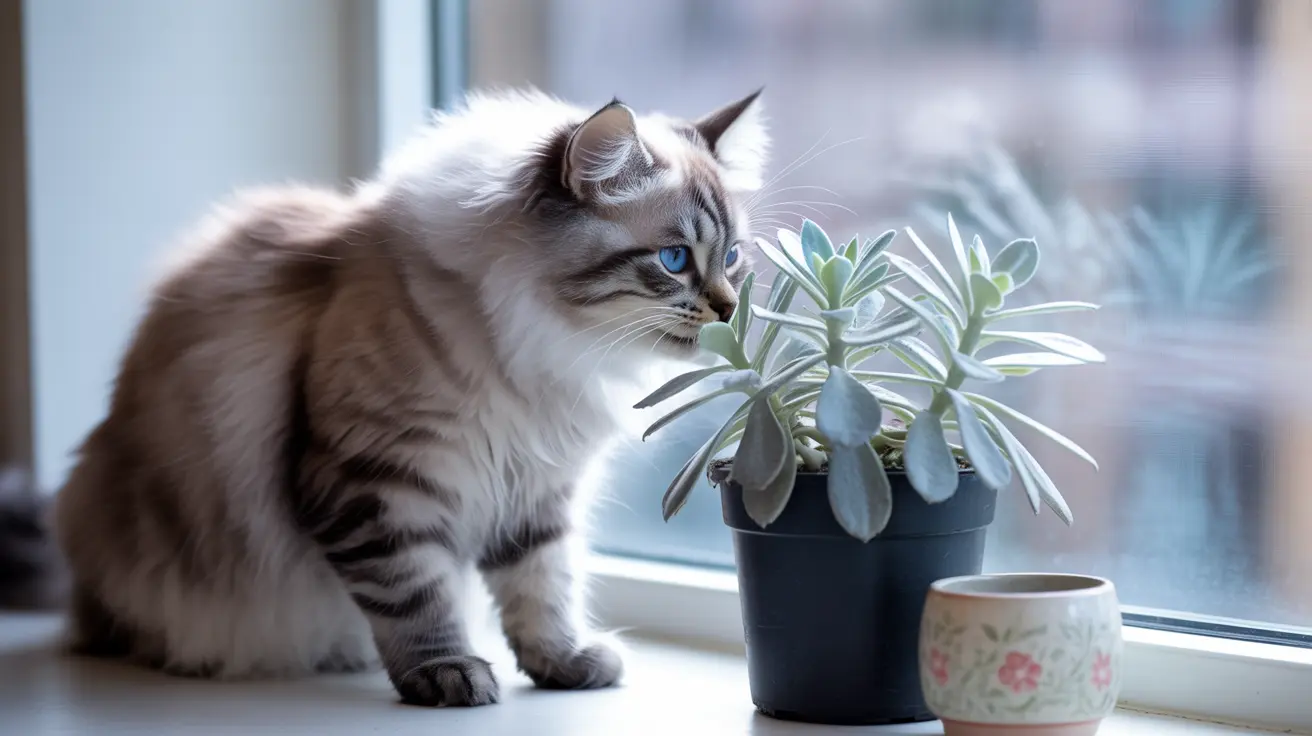If you're a cat owner considering adding the aluminum plant (Pilea cadierei) to your indoor garden, you'll be relieved to know that this attractive houseplant is generally considered non-toxic to cats. This comprehensive guide explores the safety of aluminum plants around felines, potential concerns, and what you need to know to keep your pet safe.
While many common houseplants can pose serious risks to cats, the aluminum plant stands out as a pet-friendly option. However, understanding the potential effects of plant ingestion and knowing what to watch for remains important for responsible pet ownership.
Understanding the Aluminum Plant and Cat Safety
The aluminum plant, scientifically known as Pilea cadierei, features distinctive silvery markings on its leaves that make it a popular decorative choice. Unlike many other houseplants that contain harmful compounds, this species doesn't produce toxic substances that could seriously harm your feline companion.
Multiple veterinary organizations, including the ASPCA, have classified the aluminum plant as non-toxic to cats. This means that even if your curious cat decides to take a nibble, they're unlikely to experience serious adverse effects.
Potential Effects of Aluminum Plant Ingestion
While the aluminum plant isn't toxic, cats who chew on or eat parts of the plant might experience mild digestive issues:
- Temporary stomach upset
- Mild vomiting
- Brief periods of diarrhea
- Decreased appetite
These symptoms typically resolve on their own without requiring veterinary intervention. However, it's still important to monitor your cat after any plant ingestion incident.
Prevention and Safe Plant Ownership
Even though aluminum plants are safe, it's best to discourage your cat from treating them as snacks. Consider these preventive measures:
- Place plants in areas cats can't easily access
- Use deterrent sprays designed for plants
- Provide cat-safe grass alternatives
- Create engaging environmental enrichment to reduce plant-chewing behavior
Monitoring Your Cat's Plant Interactions
If you notice your cat showing interest in your aluminum plant, observe their behavior and watch for any unusual symptoms. While serious reactions are unlikely, being vigilant helps ensure your pet's safety.
Keep track of:
- How much plant material was consumed
- When the ingestion occurred
- Any changes in behavior or eating habits
- The duration and severity of any symptoms
When to Contact Your Veterinarian
While aluminum plant ingestion rarely requires medical intervention, certain situations warrant professional attention:
- Prolonged vomiting or diarrhea (over 24 hours)
- Signs of dehydration
- Lethargy or unusual behavior
- Large amounts of plant consumption
- Pre-existing health conditions that might complicate recovery
Frequently Asked Questions
Is the aluminum plant toxic to cats if they chew on its leaves?
No, the aluminum plant is not toxic to cats. While chewing on leaves might cause mild stomach upset, it won't result in serious poisoning or long-term health effects.
What symptoms might a cat show after eating parts of an aluminum plant?
A cat might experience mild gastrointestinal upset, including temporary vomiting or diarrhea. These symptoms typically resolve on their own within 24 hours.
How does the aluminum plant compare to other common toxic houseplants for cats?
Unlike truly toxic plants like lilies or pothos, aluminum plants don't contain substances that can cause severe poisoning. They're considered safe alternatives for homes with cats.
What should I do if my cat eats a large amount of aluminum plant?
Monitor your cat for signs of digestive upset. If symptoms persist beyond 24 hours or seem severe, contact your veterinarian for guidance.
Are there safer houseplants like aluminum plant that I can keep around my cats?
Yes, several pet-safe options exist, including spider plants, Boston ferns, and African violets. Always verify plant safety through reliable sources before bringing new plants home.
By understanding the relationship between aluminum plants and cat safety, you can make informed decisions about your indoor garden while keeping your feline friend protected. Remember that while this plant is considered safe, monitoring your cat's interactions with any houseplant remains an important part of responsible pet ownership.






